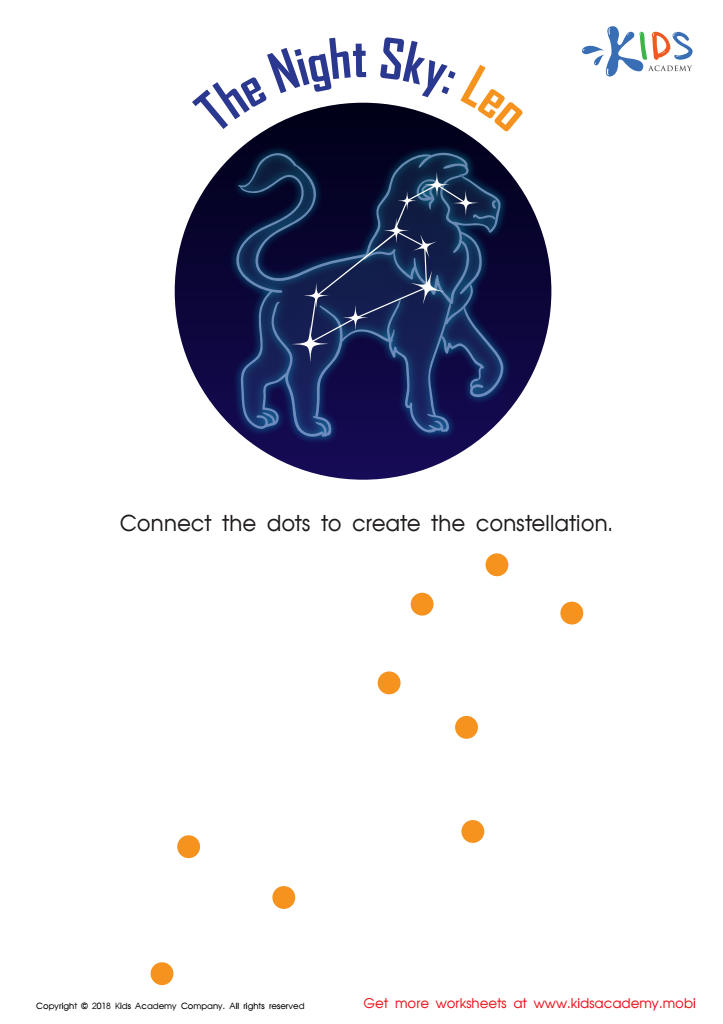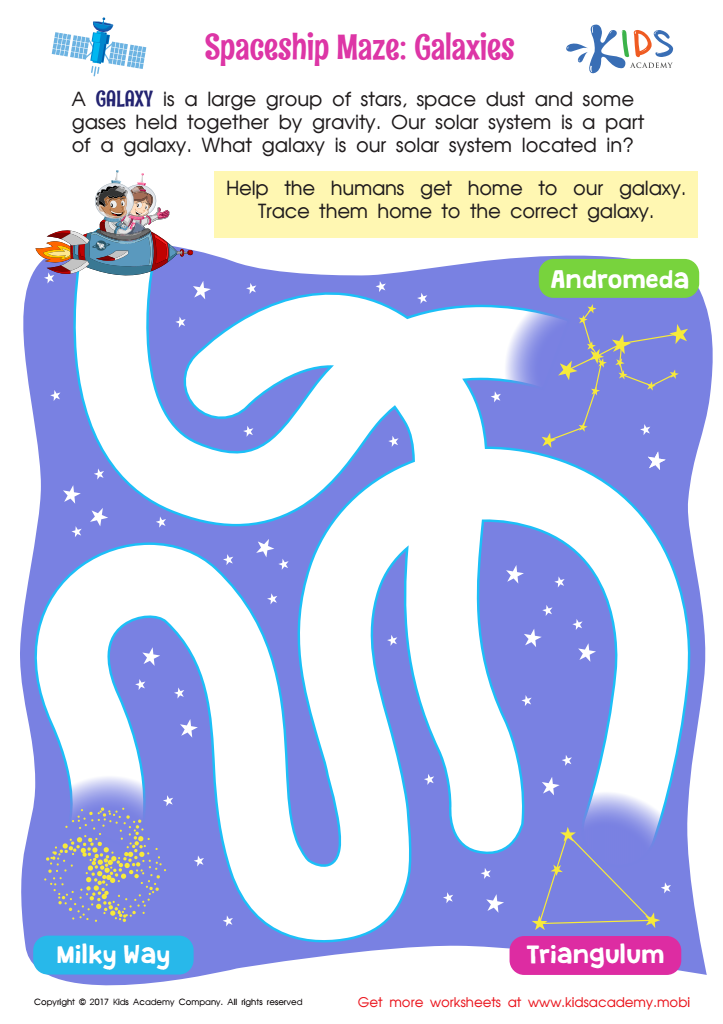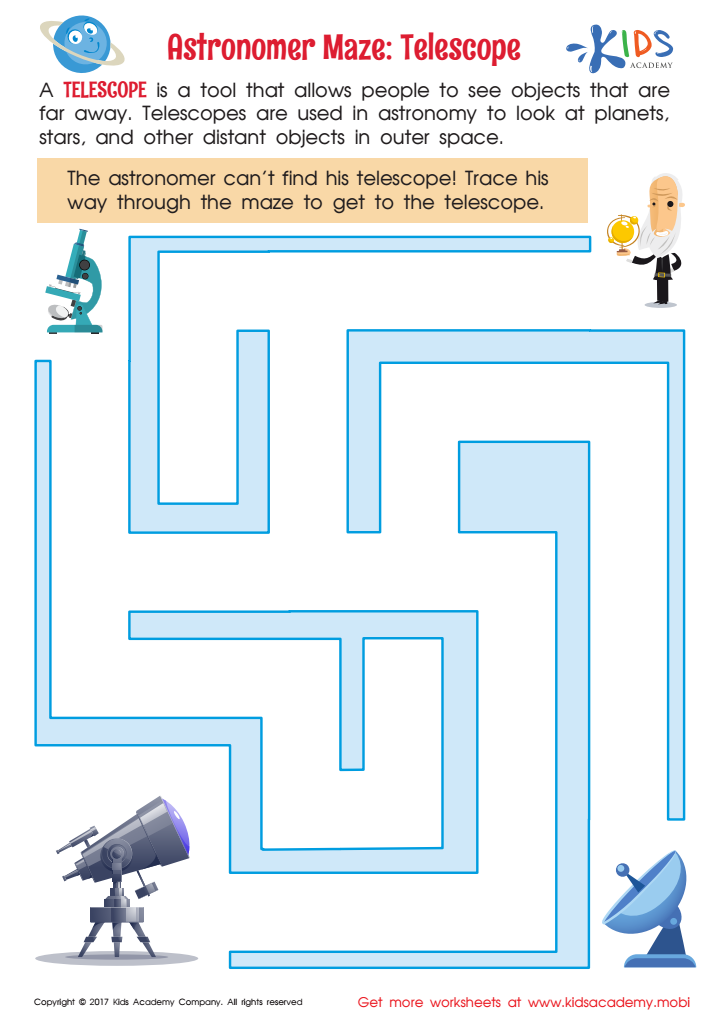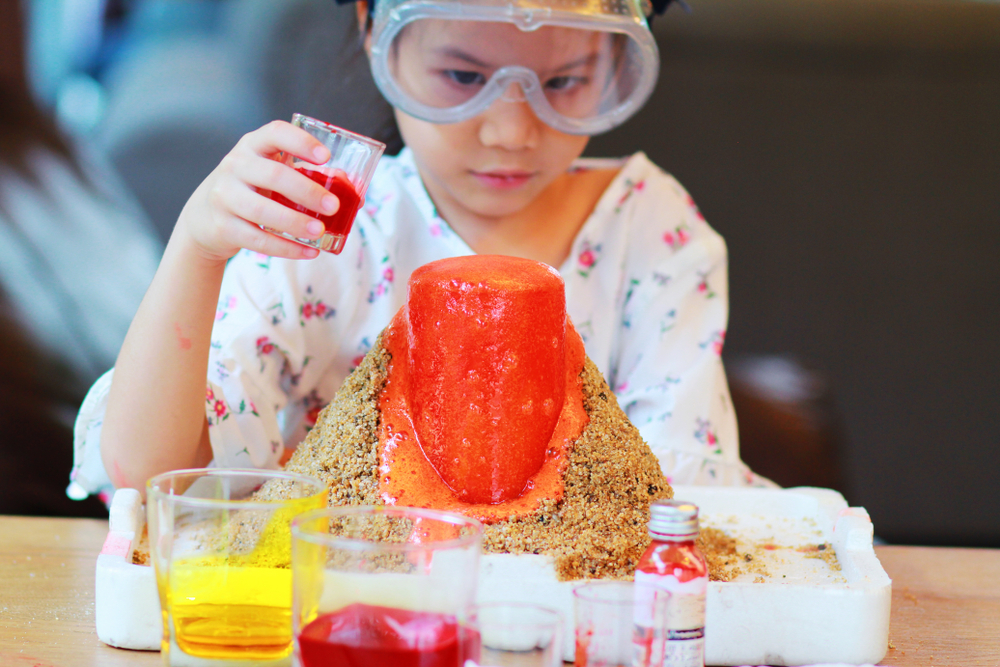Spatial awareness Normal Space Worksheets for Ages 7-9
3 filtered results
-
From - To
Explore our engaging Spatial Awareness Normal Space Worksheets designed for children aged 7-9! These worksheets provide fun and interactive activities that enhance kids' understanding of spatial relationships, improving their problem-solving skills and overall cognitive development. With a variety of exercises, including shape recognition, direction following, and mapping activities, young learners will develop their spatial reasoning in an enjoyable way. Perfect for classroom and home use, our worksheets encourage critical thinking and creativity. Foster your child's spatial awareness and set them up for success in mathematics and science with our comprehensive resources. Download your Spatial Awareness worksheets today and watch your child's skills soar!


The Night Sky: Leo Worksheet


Spaceship Maze: Galaxies Worksheet


Astronomer Maze: Telescope Worksheet
Spatial awareness is a crucial skill for children aged 7-9, influencing their ability to navigate and interact with the world around them. For parents and teachers, fostering this ability is essential for many reasons. Firstly, spatial awareness enhances problem-solving skills. As children develop a sense of their surroundings, they learn how to manipulate objects and understand spatial relationships, which are foundational for subjects like mathematics and science.
Secondly, good spatial awareness contributes to physical coordination. Activities such as sports, dance, and even everyday movements require an understanding of space, helping children cultivate their motor skills and confidence in physical activities.
Moreover, enhancing spatial awareness can also support cognitive development. Children who grasp spatial concepts tend to perform better in tasks that involve visualization and logical reasoning. This skill is linked to future academic achievement and can influence how they approach learning tasks.
In addition, spatial awareness fosters creativity and innovation. Children who understand how to manipulate space are more likely to think outside the box, benefiting their artistic and creative pursuits. Thus, prioritizing spatial awareness in educational settings encourages holistic development, making it a valuable focus for parents and teachers alike.
 Assign to My Students
Assign to My Students














